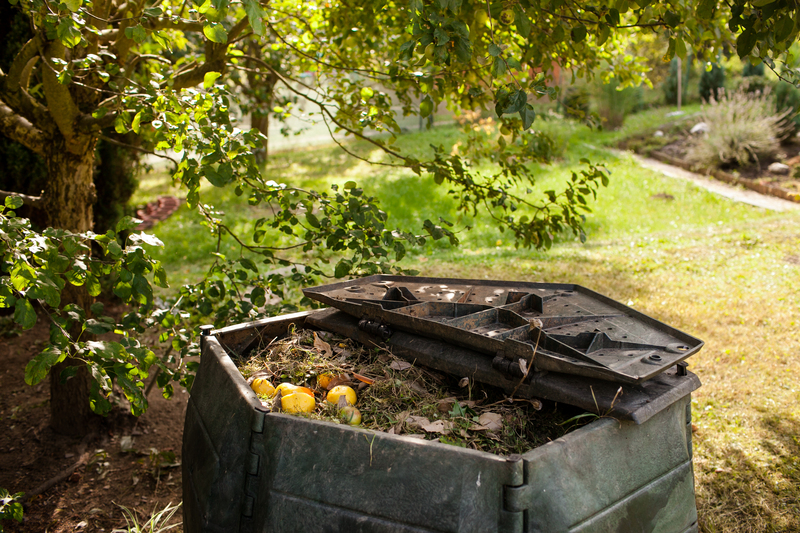The relationship between the environment and human activities is intricate and complex. As we move further into the 21st century, the impact of unsound waste disposal practices becomes increasingly concerning. Mismanagement of waste not only harms natural ecosystems but also poses significant risks to human health. This article delves deep into the issue, explores its ramifications, and suggests potential solutions.
What Constitutes Unsound Waste Practices?
Unsound waste practices refer to the improper handling, storage, or disposal of waste materials that could have been minimized, reused, or recycled. These practices include:
- Open dumping of waste without treatment.
- Burning waste, leading to pollution and health hazards.
- Failure to segregate recyclable and non-recyclable materials.
- Neglecting to manage hazardous waste appropriately.
Such practices contribute to environmental degradation, affecting air, soil, and water quality, ultimately impacting biodiversity and human well-being.

The Environmental Impacts of Poor Waste Management
The environment bears the brunt of unsound waste practices in multiple ways, including:
1. Loss of Biodiversity:
Landfill sites often encroach on natural habitats, reducing the *biodiversity* within these areas. Toxic substances leach into the soil, altering its composition and harming plant and animal life.
2. Water Pollution:
When waste is improperly disposed of, chemicals and microplastics seep into bodies of water. This not only affects aquatic life but can also contaminate drinking water sources, posing critical health threats to humans.
3. Air Pollution:
Burning waste materials releases harmful gases, including carbon dioxide, methane, and toxic compounds like dioxins, into the atmosphere, contributing to air pollution and climate change.
Human Health Consequences
The ramifications of unsound waste disposal extend beyond environmental issues, directly impacting human health. Here are some of the risks:
- Respiratory Problems: Exposure to polluted air from burning waste or decaying organic materials can lead to chronic respiratory diseases, such as asthma or bronchitis.
- Waterborne Diseases: Contaminated water from landfills or illegal dumpsites can spread diseases like cholera and dysentery, particularly in regions with inadequate water treatment facilities.
- Chemical Exposure: Hazardous waste materials, including industrial solvents and electronic waste, contain toxic chemicals. Prolonged exposure, even in small quantities, can lead to neurological damage, reproductive issues, and cancer.

The Role of Society in Combating Unsound Waste Practices
Tackling the menace of unsound waste practices requires a concerted effort from individuals, communities, and governments worldwide. Here are some suggested approaches:
Government Initiatives
Governments have a critical role in establishing and enforcing waste management policies. Effective measures include:
- Implementing Legislation: Governments should create strict regulations to manage waste generation and disposal, imposing penalties for non-compliance.
- Promoting Recycling and Reuse: Creating incentives for recycling businesses and encouraging industries to adopt sustainable practices can significantly reduce waste.
- Investing in Waste Management Infrastructure: Allocating resources to develop green technology and improve waste treatment facilities ensures better waste handling and decreases environmental impact.
Community and Individual Actions
While governments lay the groundwork, communities and individuals play an equally important role. Consider these actions:
- Educating Citizens: Community programs that increase awareness about the dangers of unsound waste practices and offer guidance on sustainable living can foster a culture of environmental responsibility.
- Encouraging Participation: Initiatives like community clean-up drives and local recycling programs enhance participation and instill a sense of ownership towards the environment.
- Promoting Zero-Waste Lifestyles: Individuals should strive to minimize their waste output by embracing practices like composting, using reusable products, and supporting brands with sustainable practices.
Technological Innovations
Innovation holds immense potential in addressing waste management challenges. Technology-driven solutions can enhance efficiency and reduce waste:
- Advanced Recycling Techniques: Innovative recycling methods, such as chemical recycling, can convert plastics back into their raw components, allowing for greater reuse.
- Smart Waste Management Systems: Utilizing IoT (Internet of Things) devices to monitor waste collection and processing can optimize routes, reducing emissions and operational costs.
- Bioengineering and Waste-to-Energy Projects: Developing bioengineered solutions and converting waste into energy offer promising avenues to manage waste sustainably.
Conclusion
Unsound waste management practices pose a formidable threat to our planet. Their effects ripple through ecosystems, degrade environmental quality, and jeopardize public health. By implementing strategic policies, fostering community involvement, and leveraging technology, we can mitigate these impacts. A concerted global effort is paramount in turning the tide on waste mismanagement, ensuring a healthier, more sustainable future for generations to come.
These interdisciplinary approaches promise not just a reduction in waste but an improvement in the overall quality of life. In doing so, we nurture not just our environment but our communities, promoting a world where nature and humanity thrive synergistically.